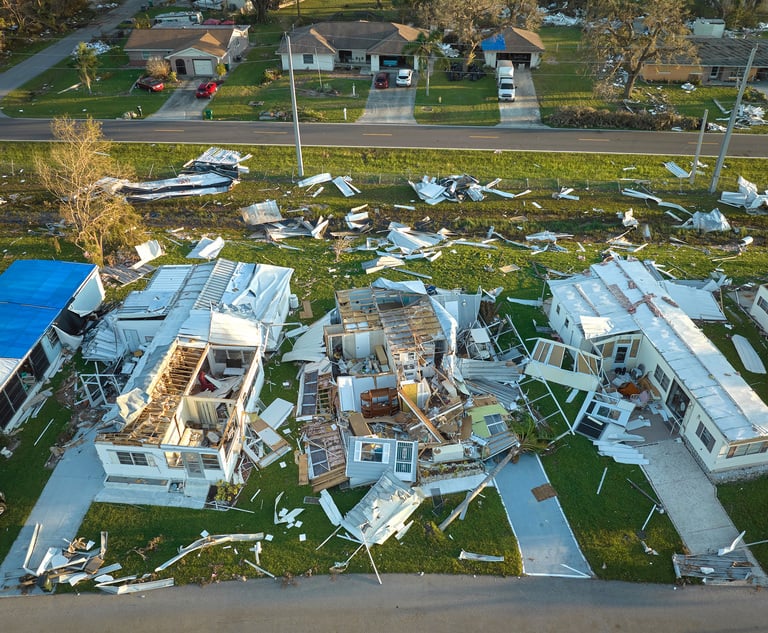The world is becoming riskier, technology is becoming savvierand consumers are becoming smarter and more demanding.
|In the midst of these changes, the insurance industry is facingboth enormous challenge and enormous opportunity. The rightleadership is critical. And, in every corner of the industry, womenare stepping up to lead.
|Related: Meet the 16 women who run state insurancedepartments
|From home office executives to risk management visionaries toinventive educators, women are helping shape an industry that isequipped to take the world by storm.
|Here are 15 women in insurance you need to know:
||
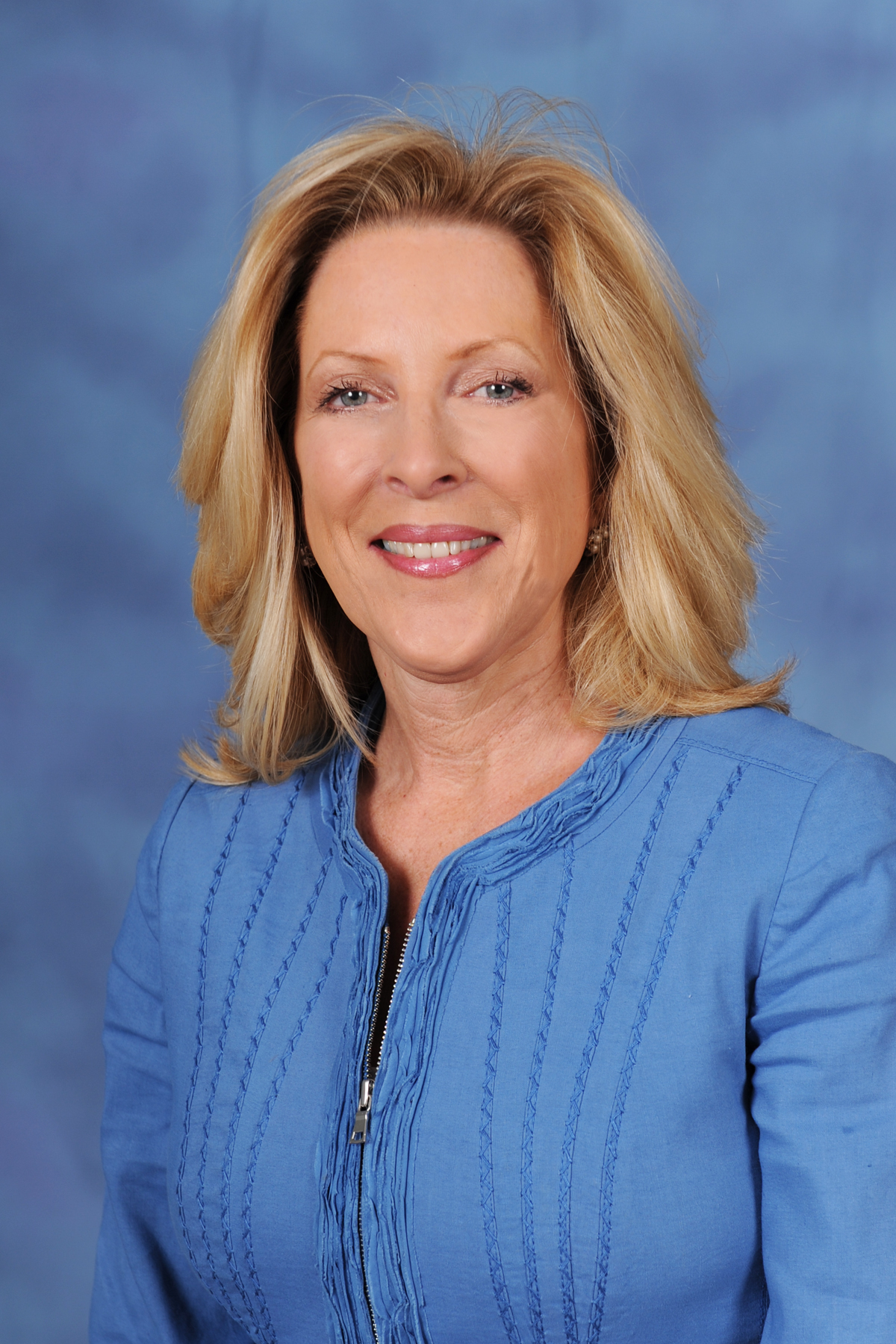 Deborah Aldredge
Deborah Aldredge
Chief administrative officer
FarmersInsurance
PC360: Why insurance? How did you get your start in theindustry?
|DA: I joined Farmers Insurance several yearsago after spending the majority of my career in the wealthmanagement industry. The insurance industry, in general, andFarmers, in particular, is going through a significant transitiondriven in large part by changes in the way customers engage withbrands and by advances in how brands are incorporating technology intotheir traditional distribution and operational systems. Thesechanges make it an exciting time to be part of this industry and Icouldn't be more thrilled to be in the middle ofit.
|PC360: Describe what you do.
|DA: I am chief administrative officer forFarmers Group, Inc., which means, in part, that no two days areever alike. Things are always interesting, as I oversee humanresources, the University of Farmers (yes, it's a real place), andrisk, in addition to administrative oversight for the internalaudit team.
|PC360: What is the biggest challenge you see for theindustry right now?
|DA: I think we have a real challenge — andopportunity — when it comes to attracting and keeping millenials in our profession. As anindustry, we've often been misunderstood as a business uninterestedin technology or of looking backward more than forward. Yet,nothing could be further from the truth. We need to work to changethe face of the industry so it is more attractive to younger folkslooking to enter the workplace. As an industry, we also have to bebetter at engaging with and understanding how we can make ourselvesa more attractive industry — be it by creating paths thatattract them better, by demonstrating more clearly our socialresponsibility efforts or by showing a stronger connection betweenwhat we really do and how it impacts the lives of everyone aroundthem.
|PC360: What excites you most about the insuranceindustry today?
|DA: I think we are making a lot of excitingchanges. I mentioned earlier the changes in consumer engagementwith brands and evolving technologies. Additionally, we are workingto bring new perspectives and competencies into the industry bydeveloping more leadership opportunities for women and people ofcolor.
|Unlike the stereotype of our industry, things really arechanging and it's a great time to be part of developing thestrategies and work plans that will have a great impact on what ourindustry looks like in the future.
|PC360: What one piece of advice would you give to womenlooking to enter the industry?
|DA: Just do it. Any change in career is goingto come with its ups and downs, but I can't tell you how great it'sbeen to move over to insurance after such a long time in the wealthmanagement industry. Don't be intimidated by the current status ofa male dominated industry. We are working to change that, but wecan't do it on our own. If there is something that interests you ininsurance, go for it. Find a sponsor, put yourself out there andsee how far you can go.
||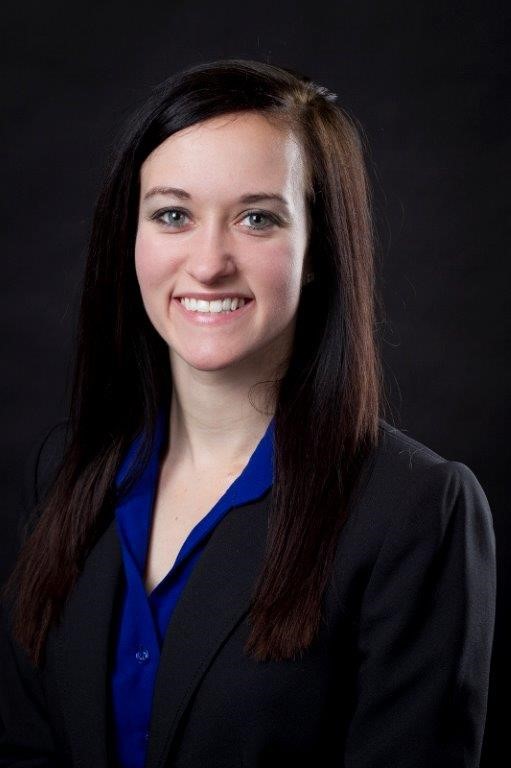 Alyssa Bouchard
Alyssa Bouchard
Assistant executive director
AmericanAssociation of Managing General Agents
PC360: How did you get your start in theindustry?
|AB: I was first made aware of careers ininsurance when I was a student at Appalachian StateUniversity. I was a management major without a great deal ofdefinition to my long-term career goals, until I discovered thatone of the largest and highest quality risk management andinsurance programs and Gamma Iota Sigma chapters in the country wasa few doors down. A friend in the (risk management and insurance)program told me about the 95% job placement rate, plentifulscholarships and unique travel opportunities available to (riskmanagement and insurance) majors. It was an easy sell, andI've been passionate about this industry ever since.
|PC360: What responsibilities does your jobentail?
|AB: I work directly with AAMGA's executivedirector in implementing the strategic goals and objectives of theorganization, and improving the benefits and services theorganization provides to its members. AAMGA providesspecialized learning opportunities and training to its member firmsthrough University East, University West and Underwriting BootCamp, and I work with the Education Committee to plan and executethose events. I serve as AAMGA liaison for our committees, andprovide the support they need to meet their goals. I am responsiblefor AAMGA student outreach, which includes a strong partnershipwith Gamma Iota Sigma, regular communication with (risk managementand insurance) professors across the country, creating joband internship interview opportunities for students at select AAMGAevents, facilitation of the AAMGA Student White Paper ResearchContest, and implementation of our new Underwriting Certificateprogram being designed for insurance students across thecountry.
|PC360: What is an achievement that you are especiallyproud of?
|AB: I am completing the requirements of theInstitutes' CPCU designation, and anticipate confirming mysuccessful completion of the program at the 2016 CPCU SocietyAnnual Meeting in Hawaii. This is my proudest professionalachievement.
|PC360: What is the biggest challenge you see for theindustry right now?
|AB: Increasing consolidation is a challengingfactor in the industry right now. M&A is on therise in all segments of the industry. Investors arehungry for new opportunities, and the insurance industry is anattractive one. Many of the smaller firms are finding itincreasingly difficult to compete, and large firms are gettinglarger. The industry always has and will continue to adapt, butthis issue will be a pressing one as long as the economy improvesand the number of eager buyers is high.
|PC360: What excites you most about the insuranceindustry today?
|AB: Our industry is addressing the talent gaphead-on. Through involvement in Gamma Iota Sigma, revamped trainingprograms, and more intentional student outreach efforts than everbefore, companies are filling that talent gap with the best andbrightest students in the business. This renewed commitment toyoung talent will maximize the potential of young entrepreneurs andcompanies in this industry.
|PC360: What one piece of advice would you give to womenlooking to enter the industry?
|AB: Do the "extras." Get involved in tradeassociations, speak to students on-campus, earn designations, andvolunteer for industry-wide community service days. As you shareyour passion for your job and this industry with others and usethat to build relationships, it will enrich your careerimmensely.
||
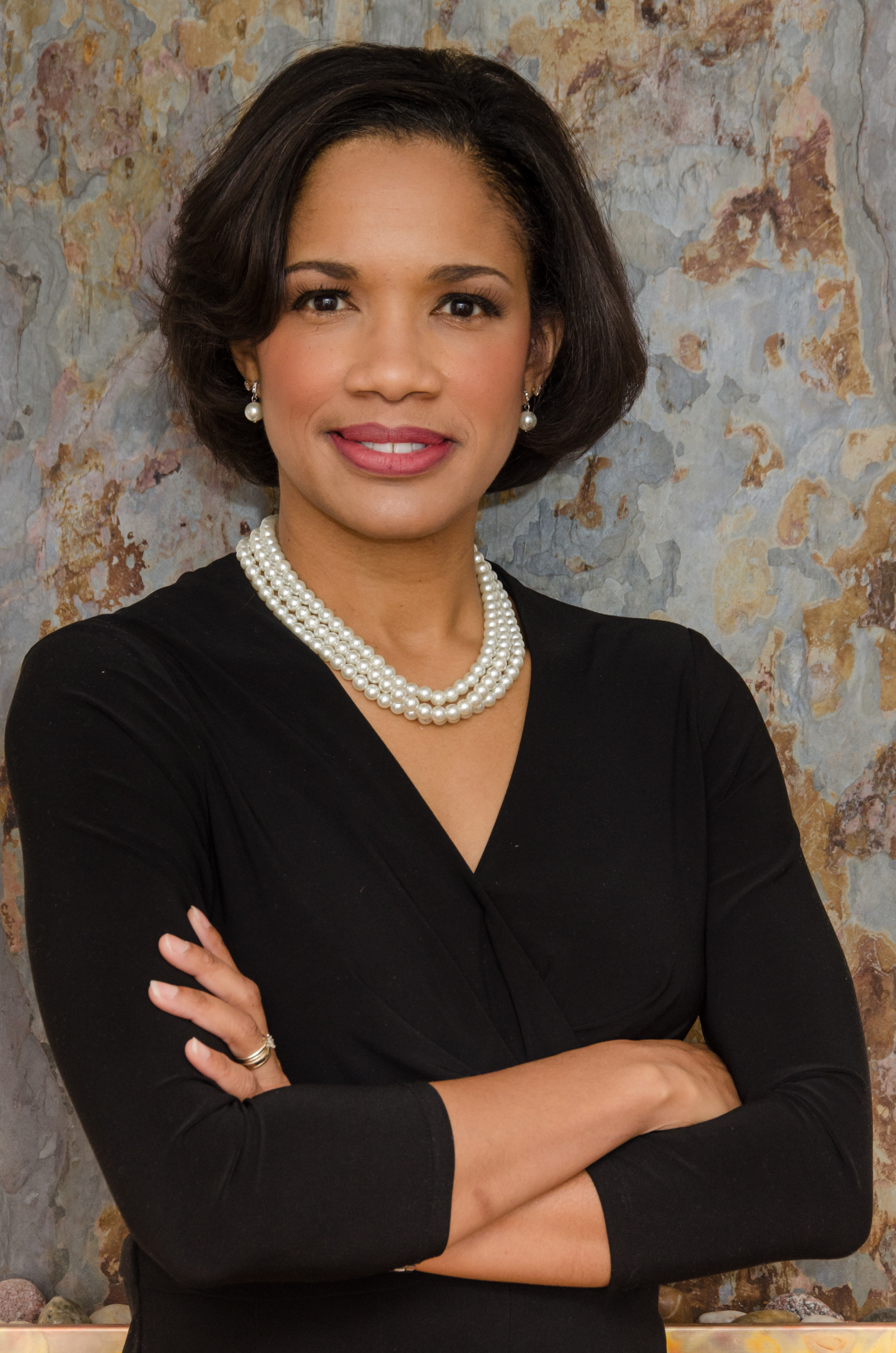 LazettaBraxton
LazettaBraxton
CFP and founder
Financial Fountains
PC360: Why did you get started in the financialindustry?
|LB: I was raised by young parents who alwaysseemed to struggle with money. I always wondered if it was a matterof choices or access to people who could really give them guidanceon personal finance.
|So I majored in finance in college and became an auditor andeventually began working for Brown Capital management in Baltimore,which is an investment management firm. The owner was an AfricanAmerican investment manager, and at the time, had $5 billion inassets under management. I worked as his personal executiveassistant and as a portfolio administrator. He took me under hiswing, and as a high-net-worth individual, I also got exposed tosome of the planning. Obviously as a portfolio manager, I got moreexposure to investments.
|PC360: What are you most passionate about, when it comesto how the industry helps people manage theirfinances?
|LB: For me, financial planning is rooted ineducation. So what I see the industry embracing more is advice andnot just investment management. For my practice, it really is aholistic approach to what people's goals are, how they want to liveand how many resources they have to help support their lifestyle byfactoring in trade-offs. For me it's a no-judgement zone, it'sbringing what we didn't get in formal education, taking out theshame and guilt of what you think you should have known and evensome of the choices you are proud of and some that you may not beproud of. It's having a partner that can take the mystery out offinancial planning and make it really practical so you can enjoylife.
|PC360: Do you think there should be more financialeducation, at least on the basics, in high school?
|LB: I think we should be educating even beforehigh school. I have a 10-year-old daughter and for her STEMproject, she's looking at if children younger than 13 should beable to have a checking account. When she was younger, she wantedan American Girl doll, so I told her you can get a knock-off atTarget for $20 versus paying $100 for an actual American Girldoll. So she's thinking through the basics of budgetingand common expenses.
|I think the education should start way before high school andeven before her age. In third and fourth grade at her school, theytalked about interest rates. Those concepts have to start early. Incollege, personal finance becomes an elective and if people aretrying to cram in what they actually need, they're not going totake personal finance unless they're really passionate aboutit.
|PC360: OK, describe what you do on a day-to-daybasis.
|LB: At its core, my practice is a holisticplanning practice. I call it four-course planning. So we're lookingat goal setting, debt management, cash flow, estate planning,investment planning, retirement planning, college planning, etc. Wealso cover the outliers such as if someone was to get married, welook at how couples can merge finances, how they can buy a home.These are sub-tiers of the main core planning.
|We work together for 12 months so we build in different thingsmonthly. It helps the system because you're not overloaded withmoney upfront, and you're not overloaded with information. Someplanners like to do the plan within the first three months. Ichanged from that because it was just too much data and some peoplewere fatigued by all the information. You're taking on in essenceclasses because we're walking through these topics, you're lookingat data, we're doing analysis, and we're having conversations. So Iwanted to make it feel very approachable and not overwhelming.
|Then I also have what I call my bite-size planning, which is forpeople who may have one topic area. This is ideal for folks who arejust getting started and people who are maybe want me to help themset up employee benefits, which is the core of your financialplanning. It's also for someone who wants to launch a business andwant to launch their cash flow. So we don't focus on more than twoto three planning areas [for these clients].
|Then as a third type of area is investment management, and I dohave people who just have it as a standalone. I also do workplaceeducation with the goal of bringing financial planning andeducation to a mass group of people.
|PC360: Share an achievement you're especially proudof.
|LB: I think generally being recognized as aperson who's been committed to an underrepresented population. Mypassion is creating room and space for people to showcase theirstrengths and be part of the conversation. And I think because ofthat I've been recognized as an FPA diversity scholarship winner;I've also served as a chair on their committee. Now I'm presidentof the Association of African American Financial Advisors.I'm also on the Grant's committee because I've been active in thecommunity. I get to be a part of things that my other colleaguesreally can't do because they are working with someone else. Ialways hope that I'm empowering people to shape conversations intheir own offices or workplaces. It is risky putting yourself outthere in a space that may or may not have a lot of traction. Thetopic of women has gained a lot of traction but talking aboutpeople of color is still pretty risky. Not a lot of people aretackling it head-on when it comes to how it affects ourindustry.
|PC360: What do you see as the biggest challenge forindustry, particularly with diversity within theindustry?
|LB: So let's talk about the evolution ofrights. Women came before people of color in terms of rights andother populations. Women are kind of the hot spot right now becausethey are seen as the CFOs of the households, and they are oftenbreadwinners of the household now. I think the lag the industry isfeeling in terms of people of color having significant wealth isdelayed. We are seeing stats from the business bureau thatdemographics are changing pretty rapidly. With that lag there isless exposure. So ,when you think about succession planning, youusually go where you're comfortable and pick people who are likeyou. But there aren't a lot of options for minorities.
|PC360: What excites you the most about theindustry?
|LB: That millennials are forcing us to betech-savvy. Millennials like advice. They want things immediately,which is forcing the industry to be more engaging with our clients,to actively be part of the financial journey. They are alsorequesting more value out of the relationship.
|PC360: What's one piece of advice you'd give to womenlooking to enter the industry?
|LB: I would say have a deep reserve of peoplewho you trust and who understand where you want to go. Because alot of women come with a lot of energy and competence, which getsdefused very quickly if you're not careful because the industry isstill trying to embrace us. Those conversation partners have reallyhelped me through my career.
||
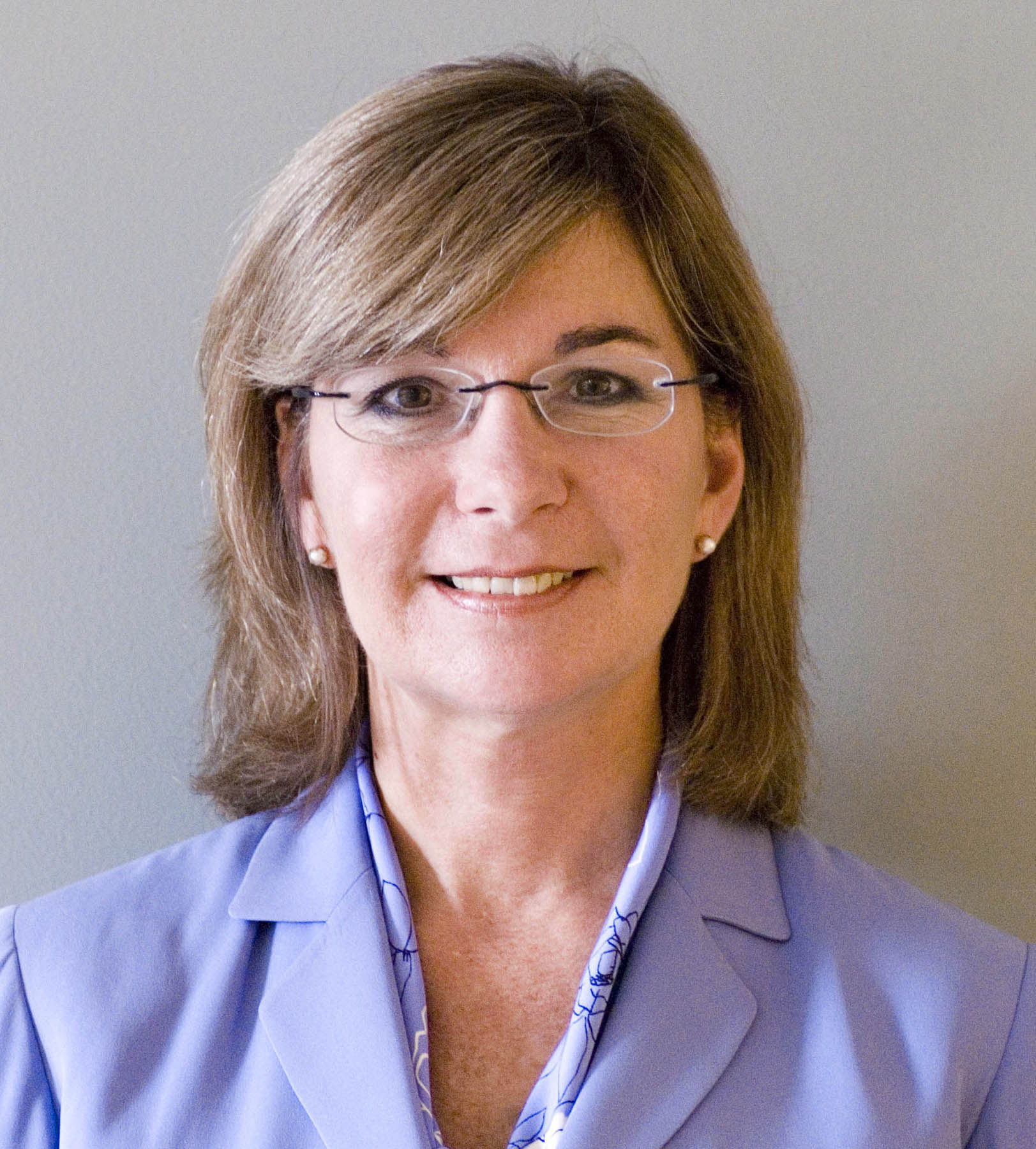 KarenClark
KarenClark
President and CEO
KarenClark & Co.
PC360: Why insurance?
|KC: It was really just by chance. In graduateschool (MA in economics, MBA) I focused on macroeconomic modelingand statistical analysis, and I loved building statistical modelson the computer. As I was finishing up my degrees, I went to justone job interview and it sounded great to me. It was at CommercialUnion Insurance Co. (CU), and the position was a research associatein a small internal consulting department. The responsibilitiesincluded building models to aid in decision making.
|One of my first projects was to help CU decide if they had toomuch exposure to hurricanes. I started building the first hurricanemodel there and became passionate about the potential forcatastrophe models in the industry. Insurers have the most to gainfrom this technology.
|PC360: Describe what you do.
|KC: I've built companies to create catastrophemodels and other risk management tools for the insurance industry.What drives me is developing advanced scientific models andsoftware solutions to help companies make better decisions withrespect to extreme event losses.
|In order to do this, I first have to figure out the mostappropriate models for insurers — why and how they will use thetools. That requires extensive and open-minded listening tounderwriters, risk officers, portfolio managers, CEOs and othersenior management. What are their struggles and what would theylike to have?
|Then, it's building the right teams that will share the visionfor the future and execute the plan. Finally, it takes a lot ofclient education and training to embed the new tools into keydecision-making processes.
|It takes a lot, but I love challenges and solving problems —especially when people say it's impossible. I don't believe in thatword and it really drives me when I hear it.
|PC360: Share an achievement you're especially proudof.
|KC: Of course, one of my most importantachievements was building the first catastrophe model and the firstcatastrophe modeling company — AIR. It was challenging to build themodels and a company, but it was even more difficult to convincethe industry to use these advanced scientific tools for catastropherisk management. (This was in the late 1980s when the nearly 100%male and London-dominated reinsurance industry thought they hadeverything figured out.) I take some of the credit for that, butcredit also goes to Hurricane Andrew — the event that proved ourmodels right and demonstrated how important they are.
|I'm even more proud of what my new company, KarenClark & Co., is doing. We're introducing to the market thefirst open loss-modeling platform that gives insurers completetransparency on the catastrophe models and control over the modelassumptions. These new models have the power to radically transformthe industry in more positive ways than the first generation ofmodels.
|I never thought I'd build models again, but after once againlistening to insurers and the challenges key decision makers havewith the first generation models, it became clear to me that thecatastrophe models could be improved significantly.
|It's turning out to be even more challenging to re-invent thecat modeling industry than it was to create it in the first place.So I'm glad I still have unwavering persistence when I know I havea good idea and the right vision for the future.
|PC360: What is the biggest challenge for the industryright now?
|KC: Obviously, the industry has to continueinnovating, and do so more quickly, to keep up with rapidlychanging technology and expanding threats to society.
|For example, catastrophe losses continue to rise due to humanactivities (building in harm's way as well as climate change), andnew potential catastrophes are becoming more likely, such as cyber.These losses are gaining an increasingly large share of thetotal.
|Historically, the industry has shied away from exposures thatare difficult to understand — earthquakes and floods, for example —and as a result insurers are covering a shrinking portion ofexposures. In the U.S., less than 50% of potential catastrophelosses are privately insured — outside the U.S. and in manydeveloping economies, the proportion is much lower.
|To maintain relevance, the industry needs to offer new solutionsand work with regulators and governments to better protectsocieties from extreme events. These solutions can include newinsurance products, mitigation and recovery initiatives.
|PC360: What excites you most about the insuranceindustry today?
|KC: The world is becoming riskier. Because theinsurance industry helps businesses and individuals deal with thisrisk, the opportunities for the industry are growing. There willalways be interesting challenges to tackle. For example, there arenew private initiatives to cover flood exposures — I hope we seemore.
|PC360: What's one piece of advice you'd give to womenlooking to enter the industry?
|KC: First, know what you want. It's much easierto get there when you know exactly where you want to go. Plan yourstrategy based on your goals (personal and professional).
|Have confidence in communicating what you want. Be your own bestadvocate, promoter and marketing rep.
|Finally, be flexible but persistent. Things may not, probablywill not, work out exactly the way you envision, and you may haveto make a few zigs and zags. But as long as you're moving in theright direction, keep going.
|This industry can be a bit stodgy and slow to change. But on thepositive side, it's stable and provides many opportunities alongwith enormous benefits to society. It's also filled with good,honorable people.
||
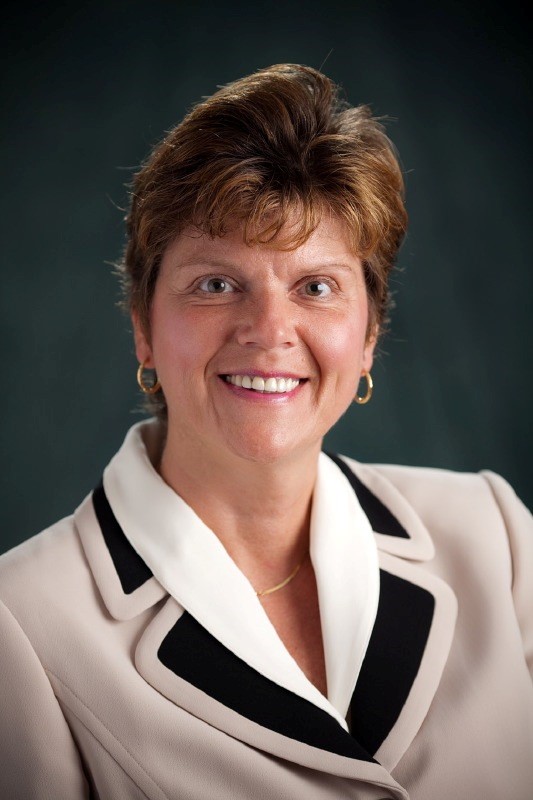 Mary Ann Cook
Mary Ann Cook
Senior vice president,
knowledge resources and content development
TheInstitutes
PC360: How did you get your start in theindustry?
|MAC: As a child, I had every intention ofbecoming an archaeologist. It wasn't until I began working for mydad on summer breaks from school that insurance started to gain myattention. I would listen to the way he advised them, always beinghonest and fair, and hear how much they trusted him in return.
|I learned that, in the best of times, insurance and benefits arethe things you don't think about at all. But when things go wrong,as they inevitably do — sometimes badly so — it's vitally importantto have the right people, the right advice and the right companiesthere to support you.
|After I saw the difference my dad was able to make in otherpeople's lives, one account at a time, King Tut couldn't hold acandle to that! I was hooked.
|P360: Describe what you do.
|MAC: I am responsible for the groups thatdesign, revise, and develop the content that goes into TheInstitutes' solutions — be they a custom-created online course, atechnical certification in claims, or a designation program likeChartered Property Casualty Underwriter (CPCU) or Associate in RiskManagement (ARM). I also develop and deliver presentations,seminars and webinars, serve on industry panels and write articles,interacting with risk management and insurance professionals acrossthe country.
|PC360: Name an achievement you are especially proudof.
|MAC: I have done my share of balancing worklife with family. I earned my MBA with honors while beingresponsible for providing elder care to my parents, who werestricken with Parkinson's disease and Alzheimer's disease. This isone achievement I am really proud of. I could not have done itwithout the support of my family, as well as the support of theInstitutes' "family." It is with the help of others that we canachieve more both personally and professionally.
|PC360: What is the biggest challenge you see in theindustry right now?
|MAC: The accelerating rate of change,particularly in the area of technology, makes it hard for companiesto maintain competitive levels of innovation and at the same timemanage customers' expectations. But there is a bright side totechnology. Data analytics, and the actionable information wederive from it, enable insurers to better target specific marketsof opportunity, detect fraud, hone pricing, manage risk, andunderstand and predict customer behaviors.
|PC360: What excites you most about the insuranceindustry today?
|MAC: Disruption and change bring potential.Every time I give a talk to current industry professionals or speakto a group of young people about the many career opportunitiesavailable to them in our business, I tell them that I have neverseen as much potential in our industry as I see today. In terms ofemerging talent, new technologies and an increasingly diverse andinclusive leadership field — I have never been moreexcited to be a part of who we are, what we do, and who we do itfor. The sky is the limit for us and the people we serve!
|PC360: What advice would you give to women looking toenter the industry?
|MAC: Watch and listen. Work with a coach whowill help guide you on your path. Stay humble and be willing tounderstand from her or him what ultimately will work best foryou.
|Learn. Never stop growing and learning as a professional. Don'tjust do "the minimum" to get by. You are selling yourself— and your clients — short. The enrichment that comes withcontinual professional development, whether through attendingwebinars and seminars, joining a professional association (such as,in my case for example, the CPCU Society), or completingprofessional certifications and designations, will only help youachieve greater credibility with your peers and enable you toprovide the best value you can to your customers.
|In the last couple of years I decided to test myself evenfurther and, with the support of the Institutes, decided to pursuea doctorate in educational leadership.
|And make a difference. Part of the responsibility of leadershipis helping others, so as you grow and develop and look ahead, don'tforget to look around and see who else can use a helping hand inher or his career. Make that difference.
||
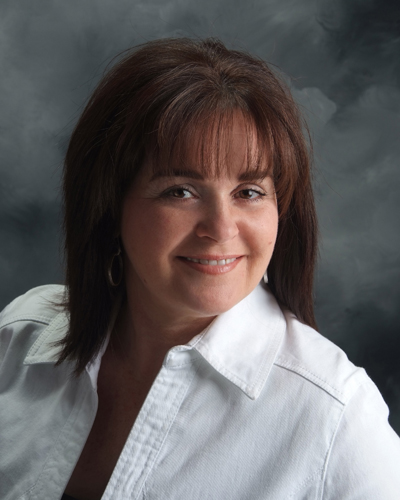 DianeDixon
DianeDixon
Owner
Faith FocusFollow-Through Coaching
|PC360: Why insurance? How did you get yourstart in the industry?
|DD: I guess I could say I have two starts. Thefirst was when I was 19 years old. I was in Chattanooga, Tenn.,living with my sister, and her insurance agent, Dave Corrie, calledand asked if she knew anyone who could answer his phone for acouple of weeks and she volunteered me.
|After two weeks and some changes on his team, he offered me aposition and I took it. I had been working with him for acouple of months, when I recall him standing here talking to me oneday — this was back in the late '70s — and he said, "Diane, if youget in here and bust your fanny and learn all you can learn, youcan go anywhere." And I remember thinking, "Gosh, I can work hard,and I like to learn. And going anywhere sounds pretty good." I wasgreen and hungry and needed a path, so I took that one. I had takena break from college and called my mom and told her I wanted togive the industry a shot, and she in her wisdom said, "OK, Isupport that, but if it doesn't work out, you need to go back andfinish school." I agreed.
|From 19 until I was 26, I worked in a variety of roles atdifferent agencies. At 26 I was actually a recruiter, working forthe same man who had offered me my first job in the industry. Andso I recruited myself to be an advisor. I set up a luncheon at oneof his favorite lunch spots, and told him I had an advisor for himto meet that I thought he would love. He showed up and it was me.So they gave me a contract; I don't think they could really say noto that! That was in 1985.
|The thing that I remember thinking as I watched Dave Corrie is,"Wow, I love this man's lifestyle, I love the relationships that hehas with his clients, I especially like the flexibility because hehad great control of his schedule, so if I can work really hard andgo anywhere, why wouldn't I take this opportunity?"
|PC360: Describe what you do.
|DD: Fifteen years ago I launched my coachingpractice. I help my clients, financial advisors, get clear aboutthe what and why of what they really want. I help them focus ontheir strengths and what's important. I give them guidance that isdesigned to move them closer to their teams. I work to improvecommitment and performance.
|PC360: Share an achievement you are especially proudof.
|DD: I'm very proud of the fact that I recruitedmyself to the industry back when there were very few women in thatrole. I had never been in sales, I was in a new community withoutexisting relationships, and I qualified for MDRT my first year. Idid that by working a system, putting in the work and keeping thefaith. The first nine months it was all about the grind. But by theend of the year I had qualified for Round Table, and it was becauseI did the grind.
|A second thing I'm proud of is that I left my core financialservices practice — a successful practice — and I went to our homeoffice to launch and lead what was known as our women's agentinitiative. We had very strong success in recruiting and retention.Our net growth of women tripled while I was there.
|But what I am most proud of is making those extra phone callsand following up when people told me "no" the first time andchallenging clients to do the right thing and refusing to back offof recommendations when I knew they were right. Today, I stillreceive notes from clients thanking me for the work I've done thathas made a huge difference in their lives and in their families'lives. I haven't been in sales for 15 years, and I still receivethese notes. I think that is a powerful testament to the impact ofthe work we do.
|PC360: What is the biggest challenge you seefor the industry right now?
|DD: I don't know if it's the biggest, but Ithink growing and keeping a strong distribution system is a bigchallenge for the industry. We need to purposefully andsuccessfully recruit and develop women, Latinos and other markets.The talent pool has changed, but our field force is still veryheavily weighted toward white males. It's going to be hard to growand keep a strong distribution system if we don't go to those otherchannels. We can't continue to grow and thrive unless wesuccessfully and purposefully grow those talent pools, because themarketplace wants us to as well.
|PC360: What excites you most about the insuranceindustry today?
|DD: This career stands the test of time. Fromthe first time I walked in the door of that insurance agency when Iwas 19 years old to today, at 58 years old, I've watched it standthe test of time. Through various changes in our world, throughtechnology and competitive challenges, it stands the test of time.Robots aren't going to replace us. What we do is still aneyeball-to-eyeball business. That's most exciting. It's an industryyou can count on.
|PC360: What one piece of advice would you give to womenlooking to enter the industry?
|DD: Come. Do it. If you do, you will find greatsupport.
|I think when women come into this industry, because it's stillhighly dominated by men, it's really important to find a goodmentor. Get connected with Women in Insurance and Financial Services, withMillion DollarRound Table or National Association of Insurance and FinancialAdvisors. All of these organizations are interested in helpingwomen come into this industry and have a great experience. On arelated note, I would challenge women entering this industry to askfor what they want and need, to teach leadership how to inspirethem. This industry cares. We want them to be their best, but we'rejust not always the best at asking what they need to succeed. Iwant women to be really supported, and part of that responsibilityis feeling empowered to ask for what they want and teachingleadership how to support them.
||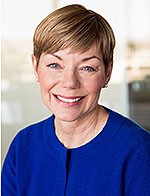 Paula Downey
Paula Downey
President and CEO
CSAA Insurance Group
PC360: Why insurance? How did you get your start in theindustry?
|PD: I joined AAA as a high school intern inclaims and loved the experience of helping people. Starting in acustomer-facing role gave real meaning to what the business wasabout, and I was hooked. And, I was fortunate to join a greatbrand, AAA, that cared for its members and employees. I wassupported in my pursuit of education from earning my bachelor'sdegree in accounting from the University of Michigan, Dearborn,through my MBA from the University of Michigan, Ann Arbor. I stayedwith AAA because the organization's values align with my corevalues and I am proud to lead an organization that exists tosupport AAA policyholders during their time ofneed.
|PC360: Describe what you do.
|PD: Every day, I have the privilege of leadinga values-based organization that is committed to serving AAAmembers and clubs by making insurance simple, proactive andpersonal. I work to ensure that we have a winning strategy andculture, and the best talent so we're best positioned for continuedsuccess in an ever-changing marketplace.
|PC360: Share an achievement of which you are especiallyproud.
|PD: I'm really proud of the progress we've madeto transform our company to ensure that we have a scalable andagile platform (technology, product and people) to enable growthand innovation. We have new products, policy and claimsadministration systems, data, digital and CRM capabilities to drivegreater value for AAA and our members. We're working to increaseour speed to market of innovative products and create the perfectcustomer experience. These capabilities are essential to compete ina marketplace that is evolving faster than ever.
|PC360: What is the biggest challenge you see for theindustry right now?
|PD: The insurance industry needs to be moreadaptable and ready to meet change. For example, we need to:
- Keep pace with digital technology to meet customerexpectations, which are increasingly defined by companies outsidethe insurance industry.
- Leverage data to create products and services targeted to morerefined customer segments.
- Ensure customer data is safe from increasingly sophisticatedhackers.
- Build an innovative culture that enables a company to quicklyrespond to — or even create — changes in the marketplace.
- Attract diverse talent to the insurance industry, includingmillennials.
Within each challenge lies an opportunity if we are adaptableand forward-thinking as an industry.
|PC360: What excites you most about the insuranceindustry today?
|PD: We have the chance to showcase ourindustry's expertise and resiliency in how we respond and adapt toemerging innovations and technologies that are impacting ourbusiness. As we have in the past, the industry must adapt to theneeds of our customers and the market, and it's an excitingchallenge.
|PC360: What one piece of advice would you give to womenlooking to enter the industry?
|PD: I'd really encourage everyone, includingwomen, to consider a career in the insurance industry because it'san exciting and fast-paced industry that provides a wide variety ofcareer opportunities.
|Lives and livelihoods get rebuilt following loss thanks to theinsurance industry, and it's important to note that our industrysupplies the products and services that enable businesses tofunction and innovate, companies to grow, and individuals tothrive.
|It's critical that the industry better reflects the communitieswe serve and that's why we need to continue to engage, educate andenlist the next generation to join the insurance industry. It's aplace where individuals can work together to make a collectiveimpact.
||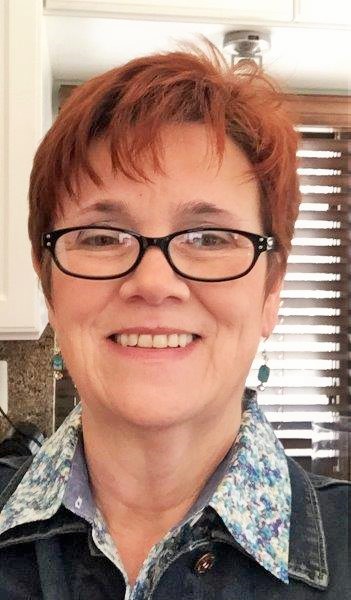 Madelyn Flannagan
Madelyn Flannagan
Vice president, agent development, research and education
Independent Insurance Agents & Brokers ofAmerica
PC360: How did you get your start in theindustry?
|MF: Like many in our industry, I fell intoinsurance. I was just out of high school, starting communitycollege and considering a career in forestry when someone offeredme a job as a receptionist at an insurance agency. The person whowas supposed to train me, and who was the only (customer servicerepresentative) in the agency, left the day after I started for avacation and never returned. So the agency owner gave me acrash course in agency operations and coverages, I studied for mylicense, passed the exam and the rest is history. I workedfor several independent agencies in the Northern Virginia area formore than 18 years before joining the Independent Insurance Agents& Brokers of America staff in 1995.
|PC360: What responsibilities does your jobentail?
|MF: As Big "I" vice president of agentdevelopment, research, and information services, I oversee a groupof programs aimed at keeping the independent agency systemsrelevant, successful and sustainable. Our Big "I" VirtualUniversity provides members with expert advice and research, theBest Practices program identifies the best operating agencies inthe U.S. and provides metrics to help all agencies be assuccessful, the InVEST program trains high school and communitycollege students about insurance and agency operations, the AgentsCouncil for Technology is a leader in helping agencies and carriersimplement technology to enhance operations, the Young Agentsprogram encourages younger agents to get involved in the industryand the association, and the Big "I" Diversity Task Force createsan awareness of the opportunities and benefits available byembracing diversity. My responsibilities also include coordinatingour biennial Future One research project known as the AgencyUniverse Study, authoring our annual market share report, andserving as a resource for other industry researchprojects. Additionally, I serve as an industry expert andassociation spokesperson for a variety of member, industry andconsumer press and other media (print, television, online,etc.). In addition to supporting a gifted and dedicatedstaff on a daily basis, I provide information resources to ourmembers and state associations.
|PC360: What is an achievement that you are especiallyproud of?
|MF: First and foremost, I am most proud to bethe mother of a great son, Jeremy. He is a college junior and isbeginning to show an interest in the insuranceindustry! Next, I'm proud of my transition from the agencyworld to the association world. While the transition surely hadsome learning curves, it has allowed me to continue to be a studentof the insurance industry, while being able to serve theindependent agency system in a capacity and at a level that I couldnot as an agent. I enjoy every interaction that I havewith our member agents and others in the industry. I thrive on theopportunity to research complex insurance issues and provideanswers and advice to help others do their jobs better andfaster.
|PC360: What is the biggest challenge you see for theindustry right now?
|MF: Adaptability. The insurance industry isfaced with rapid changes in the fields of cyber, social, customerexperience, product development and data analytics to nameonly a few. There are also a wide array of new tools, toysand technologies that need to be insured. There are start-upbusinesses with business models and product, services andapplications that don't fit the standard mold of existinginsurance policy coverage forms. Our industry needs to keep pacewith these changes and continue to be innovative and agile in thedevelopment of products, services and coverages.
|PC360: What excites you most about the insuranceindustry today?
|MF: Everything! There are so many opportunitiesin the industry, especially the independent agency system. Foryoung professionals interested in a global industry, there arethousands of employment opportunities in countless areas of theindustry. Insurance is one of the few industries thatvalues professional development and rewards professionalqualifications. With the prediction that there will be 400,000positions available in the industry by 2020 as the baby boomergeneration retires, the environment exists for a whole newgeneration of creative thinkers and digital natives to innovate andmove the industry forward at a rapid pace. For agencies,there are ample opportunities to evolve into the customer-centric,digital driven industry that consumers are seeking. It is excitingto see agencies still serving the role of trusted adviser that isvalued by baby boomers, millennials and Gen Z, while also providingtheir customers the ability to self-serve via mobile or othertechnology 24/7.
|PC360: What one piece of advice would you give to womenlooking to enter the industry?
|MF: You can have it all! There is no ceiling ordoor that should be keeping you from being successful in theinsurance industry. Women are ideally suited for every aspect ofthis industry as they possess emotional intelligence, aren't afraidto take risks, are excellent communicators and can more easilycreate consensus. It's also imperative to note that nomatter what their area of study, the insurance industry hasopportunity. If you studied or have a background in anything fromcyber to legal, there is a career in the insurance industry foryou!
||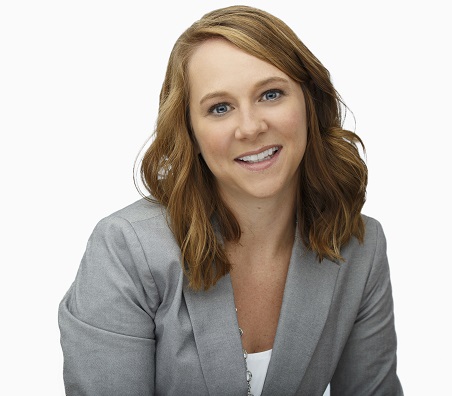 HeatherGarbers
HeatherGarbers
Vice president of voluntary benefits & technology
HUBInternational
PC360: Why insurance? How did you get your start in theindustry?
|HG: I got my start working in the familybusiness. After graduating from high school, I worked in mymother's agency — this was the beginning of my career in theinsurance industry. I discovered that I really enjoyed thechallenge of finding the right product to fit each individual'sneeds.
|Later, after graduating from the University of Nebraska, I wasrecruited to Allstate Benefits as a training specialist. And sobegan my insurance career.
|PC360: Describe what you do.
|HG: I partner with my team and clients to buildvoluntary strategies and solutions around clients' unique needs,while emphasizing the importance of employee understanding andengagement.
|PC360: Name an achievement you are especially proudof.
|HG: I'm very proud of being named a boardmember on the National Advisory Board of the Voluntary BenefitAssociation. Our board has members from all facets of the industryand we collaboratively work to push the industry to the next level.I am the youngest board member to date and am honored to be able toshare ideas with industry leaders and icons.
|PC360: What is the biggest challenge you see for theindustry right now?
|HG: The biggest challenge is the need for ourleaders to reevaluate the way things have always been done, anddetermine where the industry needs to go next. The current erafeatures the most change our industry has ever seen due tothe Affordable Care Act, a changing workforceand a more competitive landscape.
|PC360: What excites you most about the insuranceindustry today?
|HG: The great amount of new products and toolsthat are entering the market from an insurance and non-insurancebenefit standpoint. Employers understand the need to enhance theirworkplace benefits to attract and retain employees, and are lookingfor us to proactively provide them with these solutions. This is anexciting and dynamic environment for us and for our clients.
|PC360: What one piece of advice would you give to womenlooking to enter the industry?
|HG: Have the confidence and drive to go afteryour dreams — and the knowledge and business acumen to executethem.
||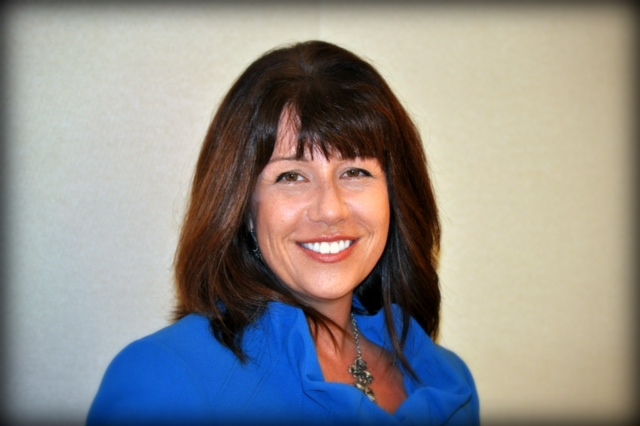 BethM. Graber, CPCU
BethM. Graber, CPCU
Executive director
Insurance Society of Philadelphia
PC360: How did you get your start inthe industry?
|BG: As a marketing major at the University ofDelaware, a career in the insurance industry wasn't on my radar,but a chance encounter would change that. As I was getting ready tograduate and looking at options for the first step in myprofessional career, I met with a friend who had a position as atraining coordinator within one of the industry's top brands. Shebegan talking to me about everything the insurance industry dealtwith. I had no idea it was so far-reaching. I was fascinated by theproperty & casualty sector and everything that went along withit. The day-to-day responsibilities of a claims representativeintrigued me. The entire process of investigating and evaluatingcases was like putting together a puzzle. What I hadn't realized atthe time was that our conversation was my first job interview andthe first step in a great career.
|PC360: What responsibilities does your jobentail?
|BG: As executive director of the InsuranceSociety of Philadelphia (ISOP), I manage one of the nation's oldestand most prominent insurance educational and networking societies.ISOP is comprised of 10,000 members from more than 200 insuranceorganizations, risk management operations and law firms from acrossthe greater Philadelphia region. In conjunction with our board, Imanage strategic planning, financial stewardship, events such asthe Independence Gala and Philly I-Day, membership recruitment andretention and development of member benefits. I also am responsiblefor expanding educational and professional development programming,as well as charitable engagement and scholarship fundraising forthe area's nationally ranked collegiate insurance and risk managementprograms.
|PC360: What is an achievement that you are especiallyproud of?
|BG: ISOP has been very privileged to havededicated members who are interested in giving back to thecommunity. So much so we were able to work with the InsuranceIndustry Charitable Foundation to expand ISOP participation from a"day of giving" into a "week of giving." This past September, ISOPvolunteers performed a variety of community service activities,including harvesting an urban garden, cleaning local parks,installing smoke detectors within inner-city homes, preparing mealsfor the homeless and renovating an apartment for thosetransitioning from homelessness. I am very proud to have been apart of organizing these wonderful and impactful activities.
|PC360: What is the biggest challenge you see for theindustry right now?
|BG: Our industry has a bright future. In orderto reach our fullest potential, we need to focus on reaching out toa diverse community to attract new talent at all levels.
|PC360: What excites you most about the insuranceindustry today?
|BG: I love how our industry in constantlyinvolved in innovation. We play an integral role when it comes tocutting edge technologies, societal changes and reaching newfrontiers. You never stop learning and there is always somethingnew to investigate and discover.
|PC360: What one piece of advice would you give to womenlooking to enter the industry?
|BG: It's important for women in our industry tofocus on their education and to pursue opportunities that lead toprofessional development. Pursuing an MBA, enrolling inprofessional designation programs and continuing to stay at theforefront of industry trends are great resources that will lead toa successful career. There are a variety of in-person and onlineresources that can be pursued without shifting a work-life balance,and they will set those who pursue them apart from others.
||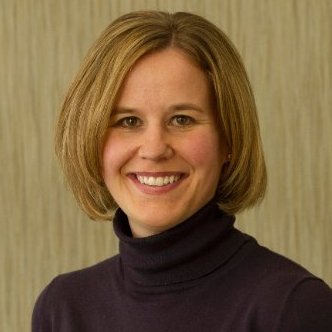 Kris Hackney
Kris Hackney
Executive vice president of customer experience
Applied Systems
PC360: Why insurance? How did you get your start in theindustry?
|KH: I have spent more than 20 years in thesoftware industry, primarily focused on business intelligence andpredictiveanalytics, which gave me an opportunity to be exposedto many industries, including retail, insurance, telco,manufacturing and government. I was drawn to Applied, and thus to afocus on insurance, because of the great opportunity to leveragetechnology to empower such a critical industry.
|PC360: What responsibilities does your jobentail?
|KH: At Applied, our mission is to continuouslyimprove the business of insurance through innovative softwaresolutions. In my role as the leader of customer experience, I'mresponsible for customer delivery strategy and operationalexecution for Applied's professional services, support andcloud-based solutions. My team and I focus on ensuring Applied'scustomers –whether an agency, brokerage or carrier — getmaximum value from their investments in our technology.
|PC360: What is an achievement that you are especiallyproud of?
|KH: Throughout my career, I've had theopportunity to build great teams. At Applied, we've broughttogether experts in insurance and technology, and successfullypartnered with our customers to make Applied Epic the fastestgrowing agency management system in the world. I'm especially proudof how we've coupled deeply experienced experts in insurance withindividuals from diverse technical backgrounds who bring newperspectives to the table — true innovation takes strong,collaborative teams focused on challenging the status quo.
|PC360: What is the biggest challenge you see for theindustry right now?
|KH: Today's insurance industry is facing anumber of changes — increasing industry consolidation, the evolvingworkforce and changing consumer demands — and opportunities.Consumer demand for anywhere, anytime access to information ischallenging agents to scale their resources to providearound-the-clock service. These new customer experienceexpectations are creating significant opportunities for insuranceagencies and carriers to adopt new technologies that extend thepersonal touch and trusted guidance of an insurance agent to a 24/7insurance experience. Consumers are quoting, purchasing andreviewing insurance information — all on their mobile devices. Forboth millennial and Generation Z consumers, mobile access toinformation and online service is critically important whenchoosing an insurance provider.
|To provide a 24/7 customer experience, digital agencies requireclient self-service software that allows their clients to reviewpolicy information, request changes, make premium payments andmanage claims processing via online portals and mobile apps. Nativemobile apps offer clients quicker, more convenient access toinsurance information directly from their smartphone or tablet,providing greater flexibility and servicing options while keepingtheir agencies trusted advice top of mind.
|While the blurring of physical and digital worlds presents itschallenges for agents, it provides far greater opportunity toprovide customized client experiences to drive client satisfaction,retention and growth
|PC360: What excites you most about the insuranceindustry today?
|KH: Insurance is undergoing rapid digitaltransformation, reshaping fundamental business practices in anenvironment of constant change and evolving competitive landscape.As mentioned earlier, digital technology has also simultaneouslycreated a different kind of insurance consumer — one who asks foron-demand self-service from their computer, tablet or smartphonefrom every company they do business with. As mentioned earlier,younger consumers like millennials and Generation Z expect mobileand self-service applications that enable them to communicate andmake purchases on their terms. The convergence of technology andchanging consumer preferences in the insurance industry hasagencies adopting new, innovative technologies that blend thepersonal, trusted advice of the agent with customer preferences forinteraction — and that is a tremendous business opportunity tocapitalize on.
|PC360: What one piece of advice would you give to womenlooking to enter the industry?
|KH: Now is a great time to pursue a career inthe insurance industry. We need strong leaders who bring newperspectives from other industries to the table and aren't afraidto challenge "how it's always been done."
|If you're new to the industry, my advice is to seek out a strongmentor, perhaps a woman who can show you the ropes and also be asounding board as you carve out your role in the digitaltransformation of insurance. Building your network and learningfrom those who have come before you is critical for success — andthen, down the road, be sure to help others by becoming a mentoryourself.
||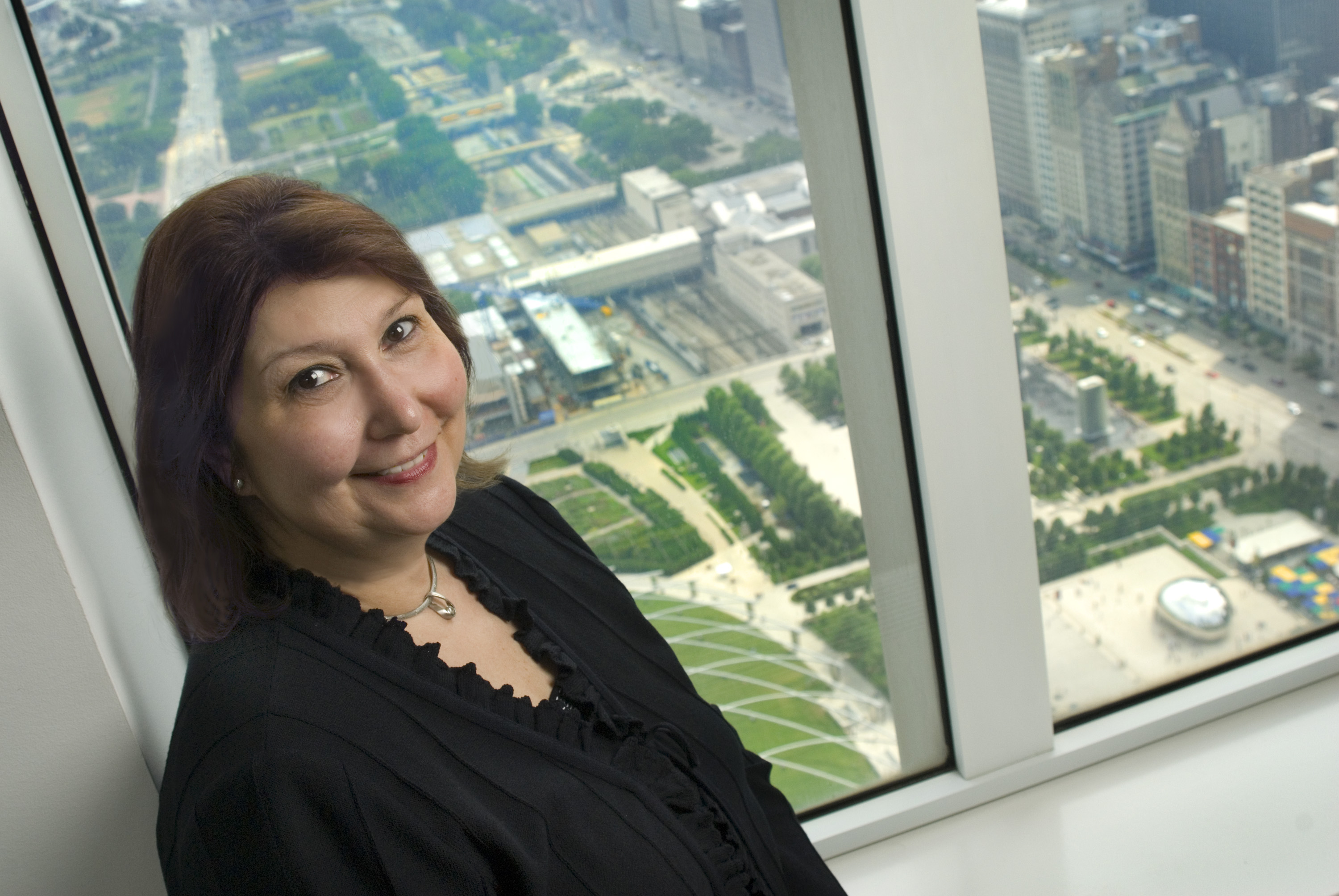 JaniceOchenkowski
JaniceOchenkowski
Global head of riskManagement
Jones Lang LaSalle
PC360: Why risk management? How did you getyour start in the industry?
|JO: I wish I could say that I grew up dreamingof being a risk manager or became intrigued after I read aboutrisk management, but my storyis similar to so many others. I went to Cardinal Stritch Universityin Milwaukee, Wis., and majored in English. When I graduated Ineeded a job and I applied to LaSalle Partners, the predecessor toJones Lang LaSalle (JLL). Despite my lack of experience I washired.
|The plan at LaSalle Partners was for me to work for the personwho was then the risk manager as well as the IT manager, initiallyas an analyst while studying for the ARM [associate in riskmanagement] designation. I would assume greater responsibility as Itook classes, and I would become the risk manager when I receivedthe designation.
|Six months after I started, the risk manager left the company. Iwas told, "Well, you're all we've got, so let's give it a try."It's 35 years later and here I am, still trying it.
|PC360: Describe what you do.
|JO: I'm responsible for global risk managementfor all regions and all business of JLL. I have 13 in my riskmanagement group at JLL, and there are four risk managers who workin our major subsidiaries.
|We're charged with identifying risks and purchasing insurancefor all of our corporate needs. In addition, we're charged withpurchasing insurance for the assets and investments of many of ourclients. For example, in the property management business, we havean insurance program that our clients can participate in that istailored to their specific needs and risks.
|I also work closely with the legal group on the wording ofdocuments, including contracts and leases, and the risk managersoften negotiate directly with our counterparties.
|JLL doesn't self-insure, but we provide claim reports and manageand monitor insured claims. We work with our professional standardsgroup to develop training in areas that we've identified as needingmore attention through claims analysis. Working directly withbusiness groups, the risk management team helps assess the risks ofnew initiatives as well as ongoing operations for insurancecoverage and training requirements.
|I personally am involved with the larger (merger andacquisition) activity, but my group is involved with all mergersand acquisitions, which we had 25 of during 2015. I'm part of theGlobal Operating Board for JLL, which involves crisis planning andbusiness continuity, among other things.
|In addition, I'm actively involved with RIMS as the current vicechair of the government affairs committee.
|PC360: Share an achievement you are especiallyproud of.
|JO: On a professional level, I'm especiallyproud of the role that risk management plays in our company. Thebusiness leaders want the risk managers to consult withthem on new business initiatives and problems as they arise, whichshows that risk management is well integrated into our corporateculture and adds value.
|On a personal level, I'm proud of and grateful for having beenpromoted to the rank of international director. It's the highestlevel in the company and there are approximately 350 of us out ofmore than 60,000 employees.
|PC360: What is the biggest challenge you see for theP&C insurance industry right now?
|JO: I think the biggest challenge is keeping upwith the pace of change within the business and ensuring that weaccurately assess those risks. Think about globalization ofbusiness, increased use of technology, reliance on big data,creation of new products and equipment, and technology such asdrones, just to name a few.
|They all bring new risks and opportunities to businesses tocreate new products. The challenge for risk managers is toaccurately understand and assess the risks, and the challenge forthe insurance industry is to create new products and services toeffectively transfer the new risks.
|PC360: What excites you most about the insuranceindustry today?
|JO: I'm excited about the evolution of riskmanagement, and we're at an important point in that evolution. Forexample, the growth of data analytics gives risk managers a betterway of managing and understanding risks. I'm also excited about theevolution of existing insurance products to meet changingconditions.
|Data and analytics arebecoming vitally important to the risk management process and theinsurance purchase process, and I think managing and understandingthose risks as well as those opportunities is a challenge.
|I'm also pleased that I'm seeing more women in risk managementthat are my counterparts around the globe. I see more women seniorrisk managers than I've observed women in senior insurance industrypositions.
|PC360: What advice would you give to womenlooking to enter the risk management industry?
|JO: If you're just entering the risk managementfield, it's key to align yourself with your company and itsindustry. Your role is to translate your company's needs to theinsurance industry, and convey insurance terms and issues back toyour company in an understandable way.
|Remember that you're a risk manager, not a risk exterminator.Your job is to mitigate the downside of the company's operationsand manage the opportunity. If you're far too quick to say "no"when a business unit asks for help or advice, they'll stopasking.
|Keep up with what's happening and anticipate problems, thencommunicate directly with managers when you can. You should raiseissues strategically that affect where the company is now and whereit wants to go.
|I also would encourage women in risk management to participatein RIMS. It's an extraordinary source of value to women, and as avolunteer there are all kinds of leadership roles available as wellas networking opportunities. Your membership in RIMS allows you asafe way to make mistakes and learn to be a better leader and moreeffective communicator without career consequences.
|Being a woman in risk management for me personally has beenextraordinarily rewarding and a lot of fun, and you can't forgetthat. You need to find what makes your job rewarding and fun oryou're not going to be able to keep doing it.
||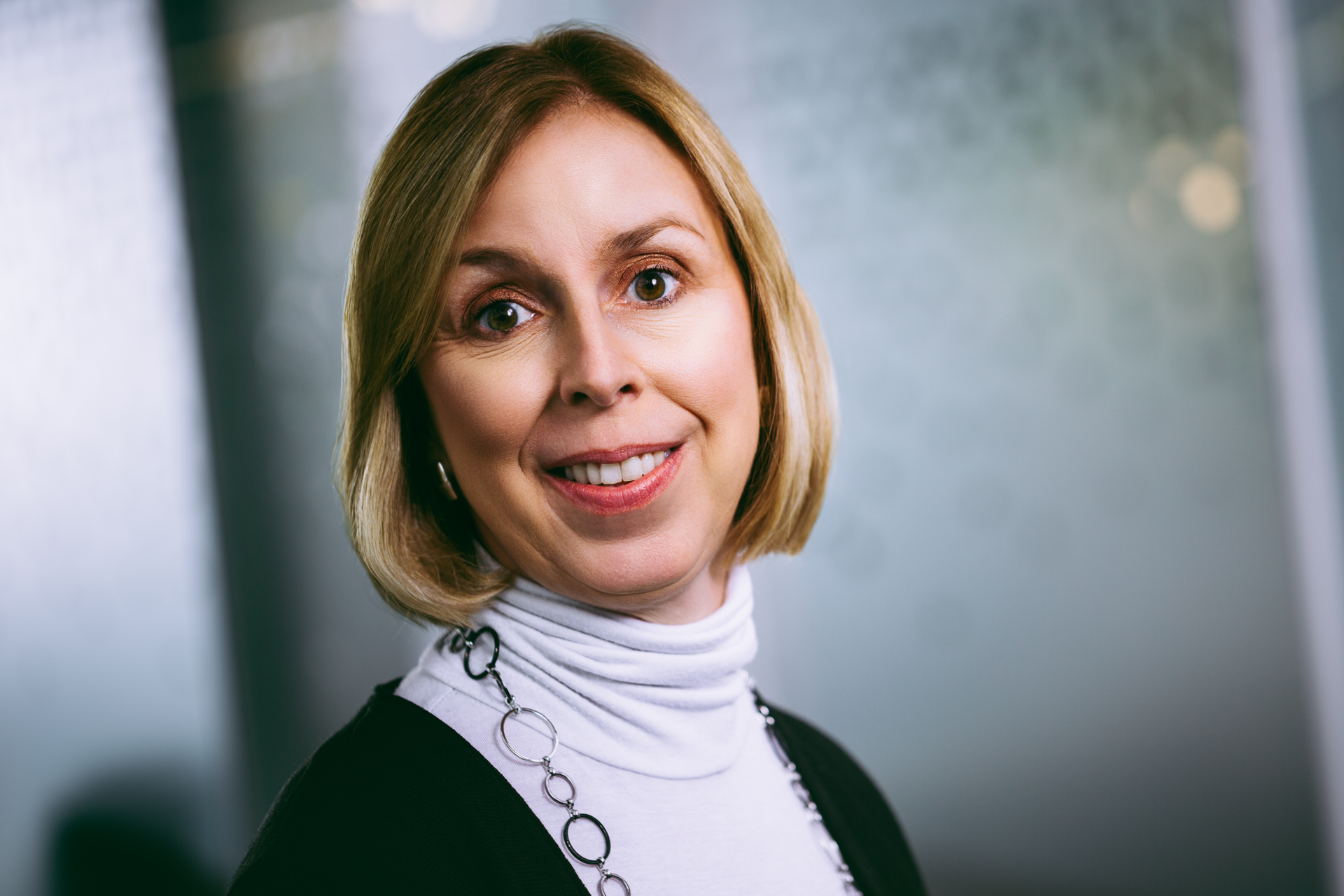 DeannaStrable
DeannaStrable
President, U.S. insurancesolutions
PrincipalFinancial Group
PC360: Why insurance? How did you get your start in theindustry?
|DS: When I was in college, I decided to pursuea career in actuarial science due to its ability to allow me toutilize my math skills in a business environment. The insuranceindustry was the most common path for this career. I started atPrincipal right out of college as an actuarial student and havebeen at the company ever since, serving in a number of leadershiproles throughout the company.
|PC360: Describe what you do.
|DS: I am one of the four division presidents atPrincipal, overseeing [the] U.S. insurance Solutions [division] aswell as our Principal Advisor Network. This division of the companyencompasses our individual life business as well as our specialtybenefits business. This allows me to be involved in all aspects ofthe business including distribution, product development, pricing,marketing, IT, operations and underwriting. In addition, I serve onour executive management group, which sets the strategic vision andplans for the entire organization.
|PC360: Share an achievement you are especially proudof.
|DS: Back in 2003, I was asked to develop astrategy for our group benefits business, a business that hadn'thistorically been focused on at the company and the financialresults reflected that. I was then asked to lead the business andput it on a path toward enhanced success. I assembled a team tolead the business and implemented the strategies that we haddeveloped. Since 2003, the earnings on that business have increasedby over 400% and our annual premium growth has exceeded industryaverages. Specifically, 2015 was a record year for that businesswith record sales, premium, and earnings.
|In addition, I am especially proud when one of my team membersmove to another part of the company and find great success in theirnew role. My role in developing other leaders is something I ampassionate about and take great pride in when I see others excel intheir positions.
|PC360: What is the biggest challenge you see for theindustry right now?
|DS: First, Americans are more underinsured,under-saved, and more underprepared for their financial future thanthey have ever been. For example, life insurance ownership is at a50-year low in this country and about half of working-agehouseholds do not own any retirement accounts. We as an industryneed to be focused on determining ways to reverse that trend.
|In addition, we have external challenges, such as economicheadwinds (interest rates, equity market levels) and regulationthat impact our results as well as our business models. Most frontand center is (the Department of Labor's) proposedfiduciary rule, which will be finalized soon. Thisrule has the potential to hinder the ability for individuals tosave for retirement, which none of us want to happen.
|PC360: What excites you most about the insuranceindustry today?
|DS: Insurance and the products we offer aredefinitely needed by individuals as they aim to protect theirassets and save for retirement. What excites me is an opportunityto rethink how we remain relevant to our potential consumersthrough different marketing, product and positioningapproaches.
|PC360: What one piece of advice would you give to womenlooking to enter the industry?
|DS: The industry has been very exciting to meand has given me the opportunity to do many different things duringmy 25-year career. It can, however, be intimidating, given the lackof females in senior roles. For example, it is not unusual for meto attend an industry event and be the only female in the room.However, I have never felt unwelcomed in those settings. My adviceis to embrace the variety of opportunities within the industry andrecognize that they can make a difference both professionally andpersonally.
||
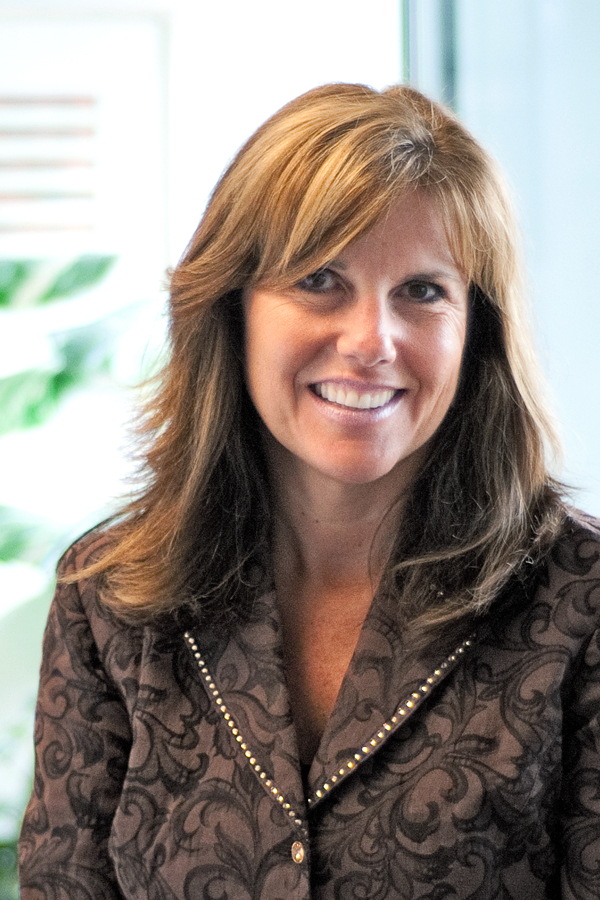 MargoThompson
MargoThompson
Principal and CEO
The AnnuitySource
PC360: How did you get your start in theindustry?
|MT: My father was in the insurance business hisentire career, so when I got out of college and was trying tofigure out what to do, my dad introduced me to theindustry.
|I went to work for the company that he worked for. We workedtogether for two year before he passed away suddenly. I ended uptaking my knowledge from the insurance company and starting my ownmarketing organization. We just celebrated 25 years as the AnnuitySource this year.
|PC360: Was there ever like a moment that you thought,"This industry is definitely where I need tobe?"
|MT: Well, I always felt that this is a verymale dominated industry. It always has been and still is. But Ialways felt I could differentiate myself. Back when I was younger,I could differentiate myself by my age and the fact that I was awoman, and I definitely used that to my advantage.
|There was a need — and is a need — for smartwomen. Smart women can actually stand out in this business. I havean office full of women here and our Cincinnati office is an officefull of women, as well. I've always felt that a smart, aggressivewoman can do very, very well in this business even though it's maledominated. So I felt passionate about supporting smart women inthis business.
|PC360: Describe what you do.
|MT: We are an independent marketingorganization. What that means is we represent about 50 insurancecompanies on the annuity side, as well as the life side. We're onthe broker side of the house, so we represent the insurance companyto the financial advisor. We're the middle person in the equation.Our customers are financial planners, stockbrokers, insuranceagents, RIAs and the financial professionals. They'll come to usfor the specific need of the product that we market, whichtraditionally is fixed annuities, immediate annuities andtraditional annuities. More recently, we've also added lifeinsurance to our product portfolio.
|PC360: Share an achievement you are especially proudof.
|MT: Honestly being in this business and beingsuccessful for 25 years is an achievement I'm proud of. Being ableto be nimble enough to succeed after 25 years in the same field isprobably my greatest accomplishment at this point.
|One other thing I am proud of is the fact that I have been ableto hire, cultivate and have really bright women that work with me;not necessarily for me but with me. I feel really good about thefact that I have a team of two offices of very bright women thatare just killing it in this business.
|PC360: What is one of the biggest challenges you see forthe industry as a whole right now?
|MT: Well, the Department of Labor and (its)coming fiduciary rule. That is definitely the biggest challenge toour industry right now. Not really knowing what it's going to looklike and how it's going to transform our business.
|Our goal is to continue to succeed, to thrive in this industry,in whatever form or fashion it ends up looking like after the DOLchanges have hit. For me, not really knowing quite yet what that'sgoing to look like when it gets implemented is achallenge. One of the reasons that we've decided to addlife insurance on a heavier emphasis is because of the uncertaintyof how the DOL is going to affect the annuity world.
|PC360: What excites you most about the industrytoday?
|MT: The opportunity. If you're smartand have the right folks on your team there really is endlessopportunity to grow, change and be part of the industry. By being asmall business owner and not having somebody tell me, "You can't dothis" or "You have to do it this way," the opportunity really isendless. It's just a matter of where you take it. I think theopportunity to change and move forward is always exciting.
|PC360: What is one piece of advice that you would givewomen looking to enter the industry?
|MT: I think the best piece of advice I couldgive a women entering the business is to embrace the fact that it'sa male-dominated business. Embrace the fact that you are unique inthe business because you're a woman and use that to your advantage.Don't try and compete on the same playing field; have a differentplaying field, have a different platform and be your own uniqueperson.
||
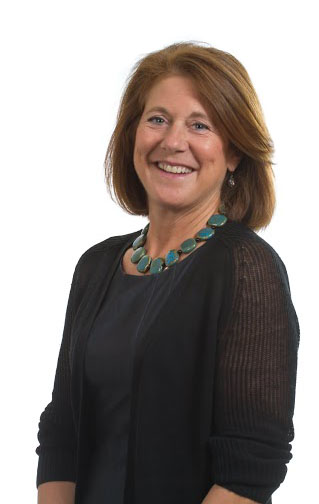 EmilyViner
EmilyViner
Vice president of agency growth &development
GuardianLife Insurance Co. of America
PC360: Why insurance? How did you getyour start in the industry?
|EV: I really fell into sales in 1984 out ofcollege as a way to escape marketing jobs where I was sat down atan electric typewriter for a typing test! I saw an ad for a salesposition in finance and took a chance. As I learned what it meantto be in sales, everything came together for me.
|First, I knew I would get a fair shake in this industry, as Iwould earn the same as my male colleagues. A commission dollar is acommission dollar and not 63 cents on the dollar like my friendswere earning in 1984.
|Second, there was no typing test and third, I realized that Icould sell something that changes lives and could have changedmine. When I was in high school, my father suddenly andunexpectedly died at just 48 years old. Understanding that acommission-based career represented equal opportunity and knowingwhat our work could positively impact families was motivationenough for me to jump into a career that I did not knowexisted.
|In retrospect, it was truly a gift to experience that kind oflife catalyst or serendipity by finding a career that gave mepassion and purpose early in my professionallife.
|PC360: Describe what you do.
|EV: I am blessed to be involved in agencygrowth and development at the Guardian Life Insurance Co. ofAmerica (Guardian) for the past 18 years. I ampassionate about leadership development and helping agencies creategender, ethnic and generational diversity within their advisorranks and leadership ranks. The relevancy of our system depends onit.
|PC360: Share an achievement you are especially proudof.
|EV: I am proud of the women and men that I havecoached and impacted over the years … and, of course, myfamily.
|PC360: What is the biggest challenge you see for theindustry right now?
|EV: Remaining relevant to consumers is ourbiggest challenge. I believe we need to be committed to makingchanges in the way we do business. At Guardian we have been on amission to bring gender intelligence to our field organization tocreate an inclusive, supportive environment where women and men notonly survive but thrive. Our firms that are embracing this describetangible shifts in their culture resulting in greater productivityand diversity across multiple dimensions. We need to look ateverything we do with fresh eyes. We need to redefine the job andget comfortable with uncomfortable conversations. I believe we haveto help millennials understand what sales is and means whenconnected to purpose andpassion.
|PC360: What excites you most about the insuranceindustry today?
|EV: I am very excited about the opportunity tosecure the future of advisor distribution by challenging what we'vealways done. Primarily, I'm excited about bringing this career intothe 'consideration set' to people that are underrepresented in ourfield force.
|PC360: What one piece of advice would you give to womenlooking to enter the industry?
|EV: Be authentic always. The gifts you bring tothe table will always shine through. Say yes to opportunities whenyou don't know the outcome or are unsure. I promise you, you willfigure it out. Seek out knowledge and people who are naturalteachers.
|Related: Top 20 companies for women in the finance andinsurance industries
|Have you Liked us on Facebook?
Want to continue reading?
Become a Free PropertyCasualty360 Digital Reader
Your access to unlimited PropertyCasualty360 content isn’t changing.
Once you are an ALM digital member, you’ll receive:
- All PropertyCasualty360.com news coverage, best practices, and in-depth analysis.
- Educational webcasts, resources from industry leaders, and informative newsletters.
- Other award-winning websites including BenefitsPRO.com and ThinkAdvisor.com.
Already have an account? Sign In
© 2024 ALM Global, LLC, All Rights Reserved. Request academic re-use from www.copyright.com. All other uses, submit a request to [email protected]. For more information visit Asset & Logo Licensing.


 Deborah Aldredge
Deborah Aldredge Alyssa Bouchard
Alyssa Bouchard LazettaBraxton
LazettaBraxton KarenClark
KarenClark Mary Ann Cook
Mary Ann Cook DianeDixon
DianeDixon Paula Downey
Paula Downey Madelyn Flannagan
Madelyn Flannagan HeatherGarbers
HeatherGarbers BethM. Graber, CPCU
BethM. Graber, CPCU Kris Hackney
Kris Hackney JaniceOchenkowski
JaniceOchenkowski DeannaStrable
DeannaStrable MargoThompson
MargoThompson EmilyViner
EmilyViner